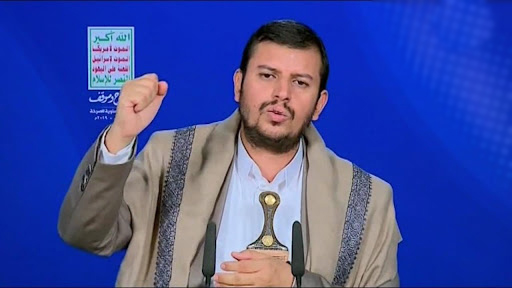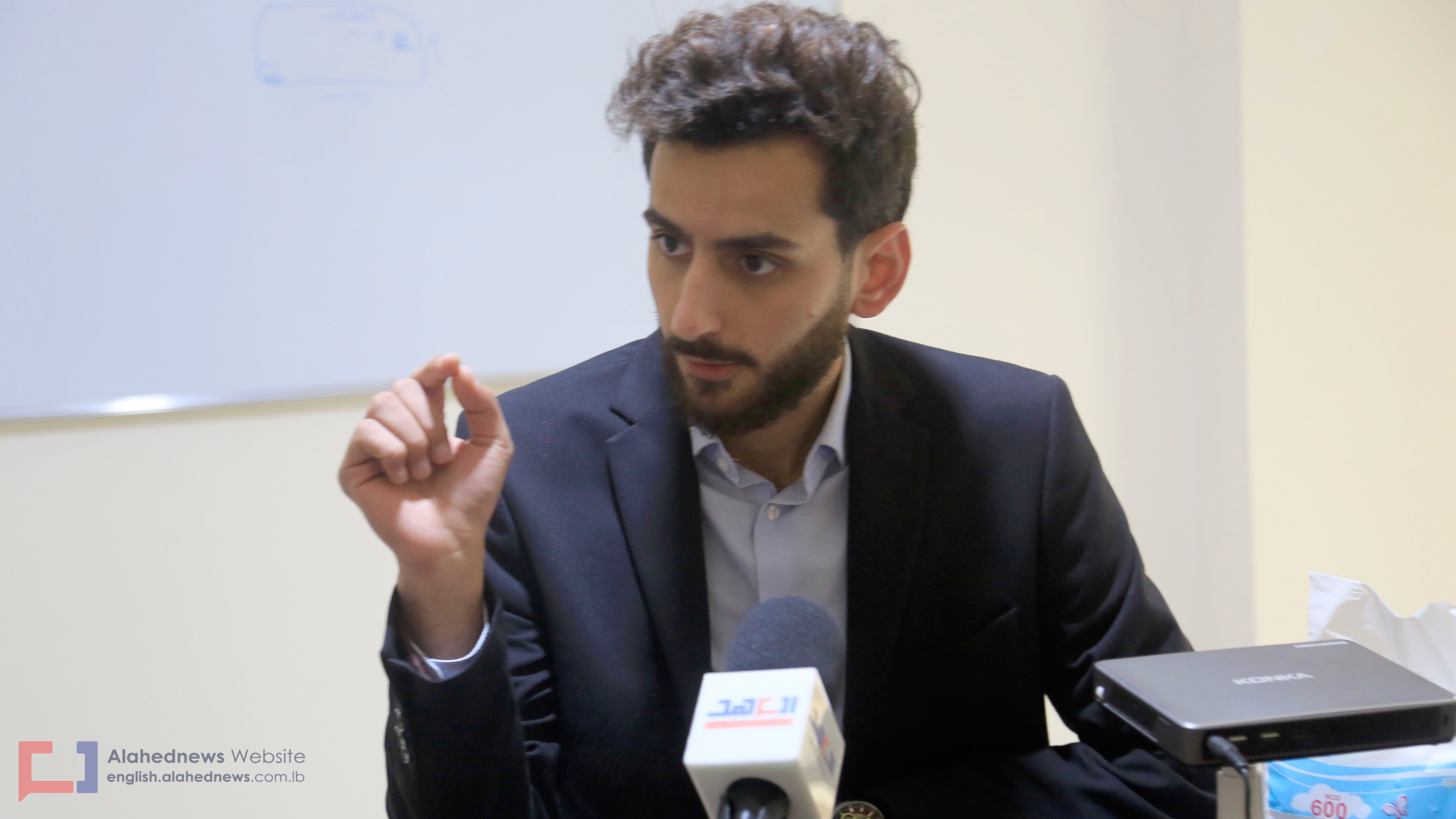
The Transnational Act of Resistance: From Yemen to Lebanon, Boycott US, Boycott ‘Israel’

By Zeinab Daher
Photo Credit: Moussa Husseini
Beirut – Resistance is the legitimate right of people who are either under aggression, occupation, or even any unnoticed kind of oppression. Resistance is conveyed in several ways, the first that comes to mind is militarily; however, many other forms that cause pain to a nation’s enemy do also exist.
Economic resistance would sometimes be an enemy’s worst nightmare!
The Yemeni Model
Yemen started boycotting American products over a decade ago, after late Ansarullah Leader Martyr Sayyed Hussein al-Houthi called for it.
Sayyed al-Houthi chanted “Death to US” and “Death to ‘Israel’”, stressing that from the basics of the war against an enemy is to boycott all its products as well as the companies that support the US and the Zionist entity.
Saada was the birthplace of such an action, but it later spread to all other Yemeni regions. Popular awareness became common as the ideology of the late revolutionary started to spread across the country.
His brother, later, Sayyed Abdul Malik al-Houthi stressed that boycotting US products is a duty.

For the Love of Palestine, For the Love of Yemen
“We’ve always heard people objecting to the idea,” said Ishteaq Sharafeddine, a Yemeni Journalist. “Most of the people hate boycotting. They are stuck to the US products.”
She went on to explain to al-Ahed News that Yemenis used to consume products without being aware about it. “Although Yemen is an agricultural country, rich in the aquatic resources, as well as in tourism and many other fields, it was on the brink of economic collapse. We’ve been controlled by the West.”
In the beginning of the war on Yemen, everybody was frightened since the country was economically and militarily collapsing, and it was subject to the aggression waged by 20 countries, Ms. Ishteaq recalled. “It was really hard to overcome. Salaries weren’t paid in the first three months of aggression. People were facing a very harsh situation.”
However, the Yemeni journalist stressed that her nationals have faced everything happening there with their awareness. We tried to make clear for others that we’ve already been into poverty whether under aggression or not. “The situation did only increase the scale of poverty. It is the truth. People started to recognize more that freedom and independence are achieved by boycotting the US products.”
Saada, a northwestern governorate in Yemen, is equated by Ishteaq to south Lebanon, an area often referred to as a symbol of resistance and rejection of occupation. The people of Saada were leading in the issue of boycotting the US, and they were the ones who inspired other nationals to do so.
“As always, such ideas are seen as impossible and useless. Boycott has always been mocked by many people who were not even aware that the alternative to the US product is already available,” she added.
It was not only an issue of finding a substitute. We were in a real war, the lady stressed. “For example, paying 10 rials would mean nothing for a Yemeni person, but the Americans and the Zionists buy weapons with my money, then use them to kill the Palestinians,” Ms. Ishteaq explained.
“The main reason for which we started boycotting US products is that we didn’t want to kill the Palestinians.”
But after the war, things turned worse and more difficult. We had an added reason to our action. Yemen came along with Palestine, and most of us are families of martyrs. If you visit northern Yemen, you could barely find a house that didn’t sacrifice martyrs, she noted.
“Also in some families that are pro-Saudi Arabia, you find some good member who was martyred defending the nation.”
“We first started boycotting food. If a storeowner says that he doesn’t have any alternative, we try to tell him and any other customer that we won’t but US products.”
We later turned to raising awareness through lectures, plays and videos explaining the reasons behind the boycott and what the other choice would lead to. Things started to turn better as people were convinced with the matter on emotional, intellectual and political levels.
The circle grew wider enough at homes. People also began to produce many goods locally. This shocked the enemy as well as the pro-Saudi tradesmen. This would eventually cause their loss.
“It was enough that we had awareness, we trusted ourselves and witnessed that Yemen can be strong even on the economic level.”
Lebanese Model
In Lebanon, Hezbollah Secretary General has stressed in a recent speech marking the anniversary of the Resistance Martyr Leaders that “Boycotting US goods is painful for the Americans.”
Sayyed Nasrallah called on all the elites, scholars and thinkers to resort to this choice by setting programs and plans as part of a major confrontation with the US administration.
Mohammad Deeb, Public Relations Director of ‘Boycott US Products’ global campaign, elaborated to al-Ahed News in an exclusive interview about the campaign’s goals, strategy and plans.
Reflecting that boycott movements worldwide have been swinging between periods of strength and others of weakness, Mr. Deeb explained that this was due representing reactions to certain incidents that urge the people at some place to take the action or not.

In other words, when ‘Israel’ launches a strike against the Gaza Strip, people want to support the Palestinians so they start boycotting some products made by the countries that directly support the Zionist entity. It was more of a reaction, Deeb explained.
Boycott US Products’ Activity
The campaign has already been active in a sort of unorganized populist movement, but now turned to be an organized one that is active in 14 countries, with Beirut being its headquarters.
The campaign’s strategy and main goal is to raise awareness among people regarding the importance of boycotting, with workshops and seminars on its schedule.
The target now, Mr. Deeb said, will be schools and universities “where we will detail to the students the goals of this campaign that is based on boycotting the enemy.
Being very reasonable, Deeb was clear that we may not harm the enemy’s, but he was quite sure that boycotting could affect some sides of the way it markets its products.
Whether the campaign has caused pain to the enemy so far, he was quite sure.
“A good evidence is that although we represent a very small and limited group but US President Donald Trump has posted a Tweet commenting on our action.”
Had it played the key role it is tasked with, this movement will make a big difference, he noted. Referring to Trump as being transparent for confessing that he depends on the Gulf States as a source of wealth, Deeb stressed that when this same president recognized the influence we could make, he made a tweet claiming “the US won’t be affected even if you boycotted or made any other anti-US products movement.”
Commenting on the latest call made by Sayyed Nasrallah, Deeb said that at some place earlier to the speech, we had a poor interaction on social media. However, soon after it, people started to interact massively. Some people started using the campaign’s posts, making it more active.
There is an entire people which is ready to boycott, Deeb stressed.
“There is an environment that sees the US enemy as part of the Zionist entity, which must be boycotted and so is the case regarding all its related products.”
There is a huge popular base that adopted this viewpoint but still lacks the right strategy, Deeb said, as he noted that the campaign is readying 100% precise lists that will be published in the coming days, which classify most of the American products that we are using without noticing or ever getting to know that we have local substitutes for them.
Boycott iPhone
Elaborating on the importance of boycotting iPhone, the campaign’s PR Director said that even if we may consider that it is just like any other smartphone, this device breaches our security, location, calls, photos and contains a database for every user.
Let alone that iPhone sells products that are worth $111 billion every year, a number that counts for the budget that the US uses to support the ‘Israeli’ entity.
People’s Reaction
The case among people is similar to any other situation. Some would view the idea negatively, but others still find it useful. Those could be unaware that at some point, every dollar counts.
Mr. Deeb explained that out of the 7 billion world population, 250 million are Americans. If the rest boycotted the US products, or if only a hundred million people refrained from spending $1, we would cause the US economy a $100 million worth loss.
This vision, he emphasized, is of a very big influence. “People have only to believe in it.”
Lebanese Economy
The free Lebanese economy, according to the Campaign’s PR Director, cannot bear the brunt of this step. It is because Lebanon is threatened with sanctions regardless to this movement. But what the effective action relies on, Deeb reiterated, is the popular awareness.
Multinational Companies
In the case of multinational incorporations, Mr. Deeb made clear that if they have American shareholders, or they support the Zionist entity, then they are added to the boycott list. But the companies don’t support the Zionist entity could be taken into another account. “The goal from harming the US economy is to harm the Zionist one.”
Perhaps this step creates a ripple effect that would be conveyed in all free countries. Boycott is an action equal to military resistance. It takes some more popular awareness to make it spread.
Save the children of Yemen and Palestine. Resist. Boycott US, Boycott ‘Israel’!
Comments



